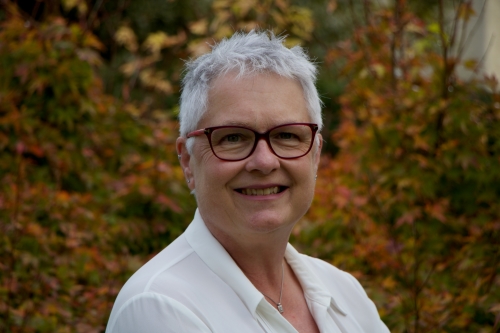The head of the national body set up to facilitate speaking out by staff about concerns and care failings is to step down, in the wake of revelations that the organisation is facing the axe.
The National Guardian for the NHS, Dr Jayne Chidgey-Clark, is to retire after nearly four years in the role created to champion speaking up by staff, following a number of high-profile scandals.
“I would like to thank those workers who have had the courage to speak up to their guardians”
Jayne Chidgey-Clark
Dr Chidgey-Clark, a nurse by background and who is still on the register, was appointed to the National Guardian’s Office during the Covid-19 pandemic years in December 2021.
The National Guardian’s Office itself was established in 2015 and has led a network of Freedom to Speak Up (FTSU) guardians working across NHS trusts and assisting nurses to raise concerns.
The announcement of Dr Chidgey-Clark’s departure follows a government statement on 28 June, published on the eve of the 10 Year Health Plan, that 201 organisations were set to be scrapped.
Those earmarked for the axe include the National Guardian’s Office and other government arms’-length organisations like the Health Services Safety Investigations Body.
As a result of this situation, the national guardian role will not be replaced. Instead, Bethany Carter, national lead for guardian support, will manage the running of the office as interim director.
Commenting on retirement, Dr Chidgey-Clark said: “It has been an incredible privilege to work with a network of over 1,200 local Guardians across the NHS, independent sector and national bodies.”
“I would like to thank those workers who have had the courage to speak up to their guardians, and all the guardians who work so hard to be part of the improving culture in their organisations.”
Dr Chidgey-Clark has also expressed gratitude to proactive NHS leaders, saying, “I also want to thank those who listen well, follow up, and actively demonstrate a listening and learning culture.
She added: “It has been a privilege to work alongside my team at the National Guardian’s Office, and with patient safety and quality leaders across the NHS, in supporting improvements to the speaking up culture.”
Ms Carter, now interim director of operations and strategy at the National Guardian, thanked her predecessor for her leadership and contribution to building a culture across the NHS where staff “feel safe, supported and confident in raising concerns”.
“Guardians are key to safeguarding workers’ ability to speak up about concerns, which improves patient safety and supports the development of safer, fairer, and more transparent healthcare systems,” she told Nursing Times.
Dr Chidgey-Clark is also the independent chair of the Oxfordshire Safeguarding Adults Board. Previously, she also worked with the NHS England New Care Models Programme as a clinical associate. She was awarded a PhD in her specialist clinical area, end-of-life care.
Suzanne McCarthy, chair of the National Guardian’s Office’s Accountability and Liaison Board, said: “I want to recognise Jayne’s commitment to the National Guardian’s Office and to Speak Up Guardians.
“We warmly thank her for her leadership and contributions,” she said.
Upon hearing of the abolishment of the National Guardian’s Office, Dr Chidgey-Clark had said she experienced “great sadness”; however, she has added that there was still progress to be made.
She said: “I hope that all leaders, managers and regulators will continue to prioritise improving workplace culture and embed the principles and practices of FTSU – so that speaking up, listening up and following up truly become business as usual.”
Helené Donnelly, nurse and head of safety culture at Nuffield Health, has previously told Nursing Times that “the concerning element is the possible perception that the ethos of ‘freedom to speak up’ is no longer seen as an important priority for the NHS going forward”.
“The role of the FTSU guardian has been very successful and has assisted in promoting psychologically safe environments for people to speak up and ultimately protect and improve patient safety,” she noted.
Guardian’s latest annual report indicates office still needed
At the beginning of August, the National Guardian’s Office published its latest – and probably final – annual speaking up data report.
The report summarised the themes and learning from the speaking up data shared by FTSU guardians from 1 April 2024 to 31 March 2025.
Among the key findings were that 2024-25 saw the highest number of cases reported to guardians since the programme began.
Inappropriate attitudes and behaviours remained the most common theme of concern, but concerns related to worker safety and wellbeing were increasing.
Confidence in organisations to address concerns was in decline. However, NHS trusts were showing a positive shift, with more full-time FTSU guardians being appointed.

